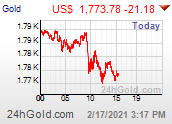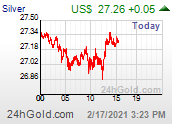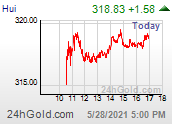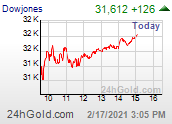Backstage Past - book review by Phil Goodstein

During the 1960s, some had the belief that loud, technologically driven noise, i.e., rock and roll, was somehow on the cutting edge of liberation and a new age. The trite and the foolish continue to believe this. Champions of environmentalism, for example, cannot conceive of their ecology celebrations without the energy-draining technological of high decibel level “music.” The understanding that instruments combined with the power of the human voice do not need microphones and that people have been able to sing and dance for millennia without amplification is beyond these individuals who claim they are working to give the earth a chance. The same has been true with the Occupy movement. Traditional and contemporary songs of protest have been missing from it while backers have seized whatever amplification they can find for their reproductions of the music machine as part of their festivities. The human microphone are Occupy events is more a product of weakness—the inability of speakers to project their voices—than an alternative to business as usual.
Rock music emerged amidst the technocratic fixation of the mid-20th century. More than telling a story, it emphasized loudness. Far from being a people’s music whereby everyday individuals could join in the lyrics and share a message, it was designed to be passively consumed by audiences in the same manner than schoolchildren are the captives of teachers who endlessly lecture them. While some musicians, especially those who came out of the folk tradition, did have lyrics of social commentary, the entire industry was geared to the norms and values of Wall Street.
The power of the protests of the 1960s literally rocked the music machine. It responded by seeking to co-opt them. Simultaneously, the rock industry was an ever more profitable commodity. The music machine was also an opiate, a seeming way of protesting the system by having listeners emulate performers with the heavy use of drugs and alcohol. The evolution from Woodstock to Altamont was rapid: from a seeming free festival to the brutal beatings and murders of those who dared question the corporate control and culture of the rock music industry.
Shortly before Woodstock, Barry Fey put together the Denver Pop Festival in the summer of 1969. Violence was its essence, complete with clashes between protestors and the police outside of Mile High Stadium. In the process, the men in blue gassed the crowd. The fumes wafted onto the football field. Far from questioning whether this was a deliberate, cynical ploy by the police, Fey simply accepts the police’s version that Denver’s finest did not know the gas could blow onto the field. Meanwhile, the rock promoter created his own self-professed goon squad as enforcers to assure the music machine functioned as an efficient means of merchandizing amplified noise in a semi-hysterical setting having resemblances to Nazi rallies at Nuremberg.
Even at that, Fey repeatedly emphasizes the need for a promoter to assure the well-being and enjoyment of the audience. That he has to repeat this point is indicative. an extreme contempt for those willing to pay immense sums to be barraged with noise is the essence of the rock music industry. As much as anything, Backstage Past is valuable for its numerous stories of the way performances have scorned their audiences, promoters, lovers, and each other. Their extreme personal decadence has seemingly been the hallmark of their success. Many of the stars such as Janis Joplin and Jimi Hendrix soon died from the way they abused their bodies and everybody else.
Namedropping is at the center of Backstage Past. More than anything, it is designed for those who believe gossip is the heart of musical criticism. (Classical music commentators are just as bad if not worse than writers on pop music in this regard.) Even so, in passing Fey does an excellent job of bringing out the corporate success of rock music. The author outlines the way ticket prices soared. The immense service charges of monopolistic ticket providers is illustrative of the corruption of the field. Promoters get a share of these charges. Consumers, in turn, have shown themselves willing to submit to any indignity and pay virtually any price to be part of the music machine’s performances. As much as anything, this is the true success of the rock phenomenon.
All the while, Fey has some fascinating stories. While he muffs many of the specifics, his tale of the collapse of the Denver Symphony and the birth of the Colorado Symphony is indicative. The Denver Symphony failed primarily from the sterile elitism and scorn of ticketbuyers of the masters of the culture industry. The Colorado Symphony originally succeeded by emphasizing a rapport between musicians and listeners. Once it stabilized itself, it eagerly sought to emulate the worst of the Denver Symphony.
Backstage Past is a collector’s item. It has an excellent, creatively designed dustjacket that can be converted into a poster. While the book’s typography is problematic and Fey desperately needed a good copy editor, he tells a captivating story, one that is far more entertaining and enlightening than anything he ever put on stage.










seldom have i read a review that demands to be read twice and makes the reader have to think. i don't agree with all it says, but as the books' author that's to be expected. your analysis of the symphony situation couldn't be more right on. congratulations barry
ReplyDelete